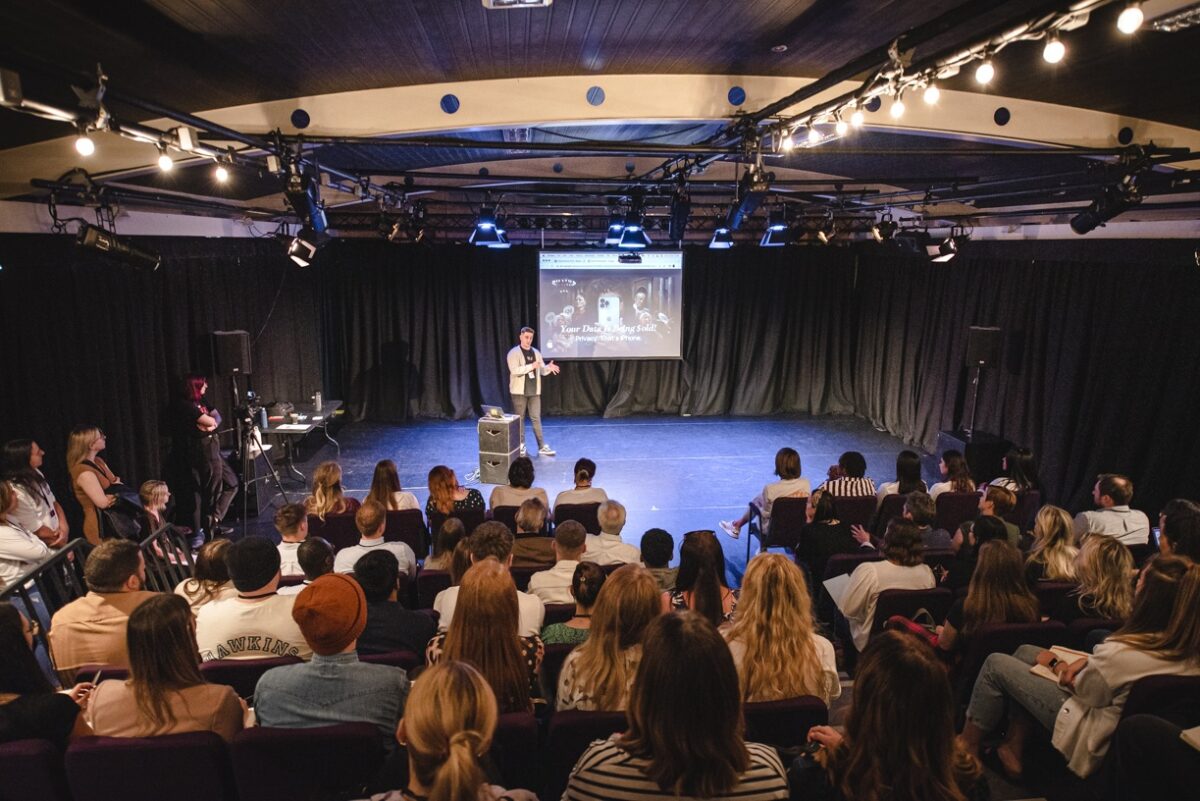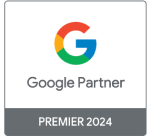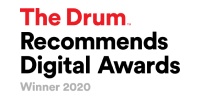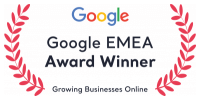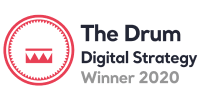With numerous insightful talks being held across two different stages at the Nottingham Playhouse last Friday, I’m sure many of you felt spoiled for choice and were left fantasising about what you’d missed. The good news is we’ve got your backs!
We know there’s nothing worse than the dreaded FOMO, so we’re here to provide a cure, giving you a round-up of the key insights we took away from each talk on the Neville Studio stage. Likewise, if you missed any main stage talks on the day, have a read of our main stage blog post to make the most of all the tips that were on offer at the event.
The 7-step protocol for better digital experiences
Our first speaker to grace the stage in the Neville studio was Dr Elena Francu from the University of Nottingham. Her talk made the case for a 7-step protocol that, through research and teaching, she believes is imperative to inform the design of better digital experiences.
The core principle underpinning the 7-step protocol is that customers should be at the heart of every business, because customer experience of a product is the main factor driving success.
Elena talked about the necessity of paying close attention to the customer and their needs in as much detail as possible, giving the example that: “the loss of moisture in your fingers as you get older prohibits easy use of touch screen tech”. Tailoring products for the target consumer is key for all sectors and, in this case, Elena proposed that touch screen technology for elderly consumers is unlikely to create a successful business, as it is simply not practical for the target customer.
We can breach your business’ cyber security
Luke Potter, Chief Operating Officer from CovertSwarm, presented a highly engaging talk concerning cyber security, a topic that may lie outside of expertise for many, but is essential for avoiding commercial ruin (especially with the imminent death of the third-party cookie looming…)
Luke talked us through how our business’ security and marketing strategies can be intertwined to avoid cyber breaches, and also taught us the steps we can take to foil attacks from expert hackers.
Here are the most important tips you need to know from Luke:
- Only permit managed and compliant devices to access your accounts
- Audit logins and MFA devices
- Create culture that encourages security and online safety
- Don’t click the links in emails (that one’s a biggie!)
A look in the mirror: diversity, equity and inclusion in the agency space
Kiorhte Aghoghogbe, Senior Account Manager at Hallam, and Nathan Nalla, Founder and Director of Be The Riot, pioneered an important conversation at the Summit about diversity and inclusion within the agency world.
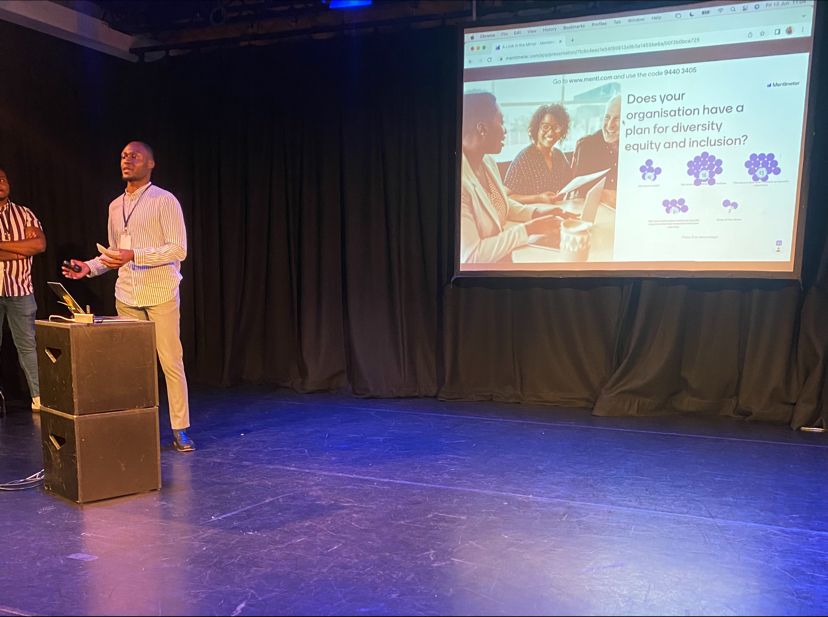
After discussing the facts from Hallam and the Agency Collective’s national DE&I report, the talk highlighted there is still plenty of work to be done regarding the representation and inclusivity of marketing agencies.
The talk explored that diversity in the workplace brings new ideas to the table from different, lived experiences; different, lived experiences of employees helps to naturally increase the creativity and uniqueness of the business, while also allowing agencies to understand and tailor to a broader range of customers.
Nathan encouraged all agencies to start taking active accountability for representation, sharing: “Taking a look in the mirror isn’t just for today, but going forward for every day and every project. Beyond this session, let’s continue to look in the mirror and continue to create change.”
Better business for a better world
Julie Reid, Head of Strategy here at Hallam, demonstrated in her talk how businesses can become a force to produce a better world, while still maintaining a profit. Julie communicated some important pieces of advice that we should all take on board when thinking about how our business is impacting society and the planet.
She said: “When companies change their logos for Pride month, or post about BLM, without exploring changes within, then they are misrepresenting themselves” – a very true, yet sadly too often seen statement, that emphasises the need for active rather than passive accountability that Kiorhte and Nathan discuss during their talk.
On approaches to sustainability, Julie argued: “Alongside consumers, there is another stakeholder that should be at the heart of businesses: the planet. We need to engage in better business for a better world”.
How to create the ultimate B2B SEO strategy
Our Head of SEO, Elliot Haines, shared his expert knowledge on how to create the ultimate B2B SEO strategy.
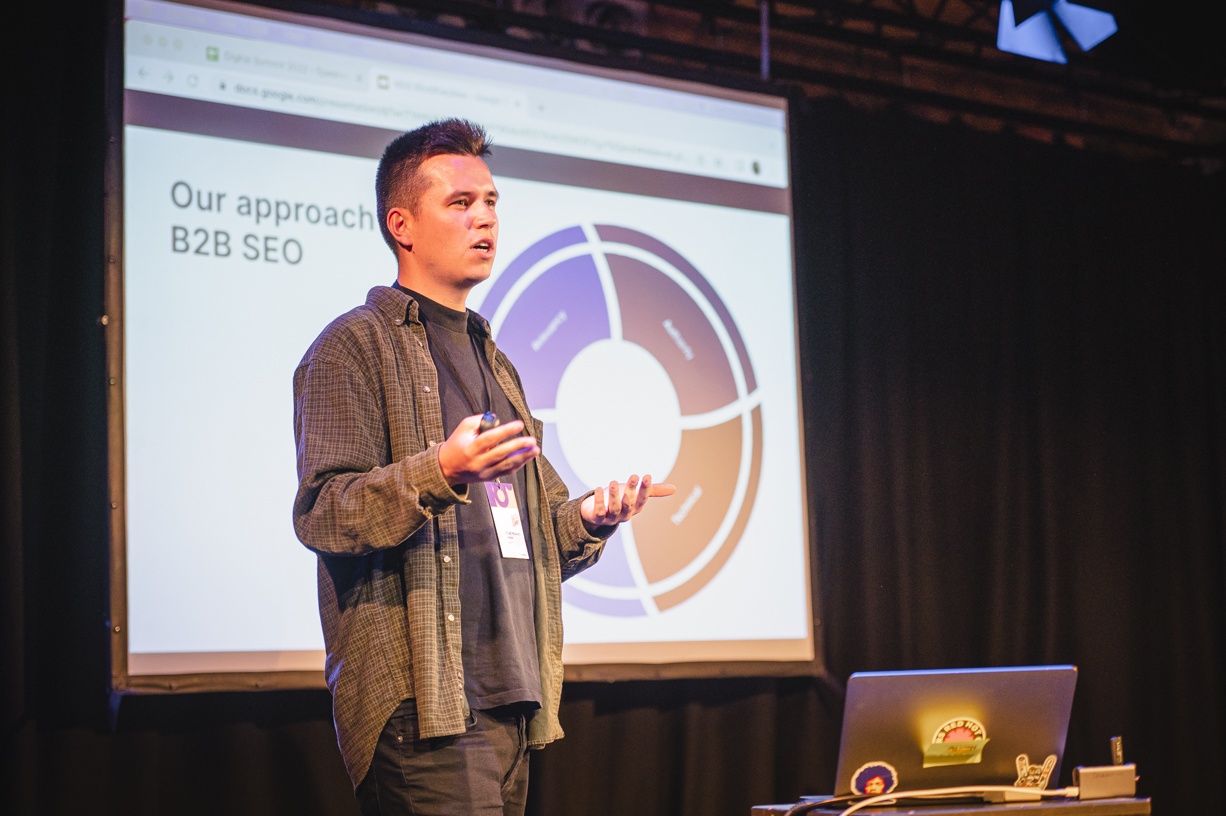
With standing room only, this was one of the most popular talks of the day – here’s three key takeaways from his talk:
- SEO fundamentals for B2B and B2C remain the same
- Use contacts & suppliers for links
- Target every stage of the customer funnel
Missed out on Elliot’s talk? Catch his slides – and the other speakers’ slides here.
Conversion research: delivering SEO without the price tag
Experience Director at Hallam, Kier Humphreys, provided some precious insights into conversion research, kindly giving us tips on how to present a better version of our brands, without the hefty price tag.
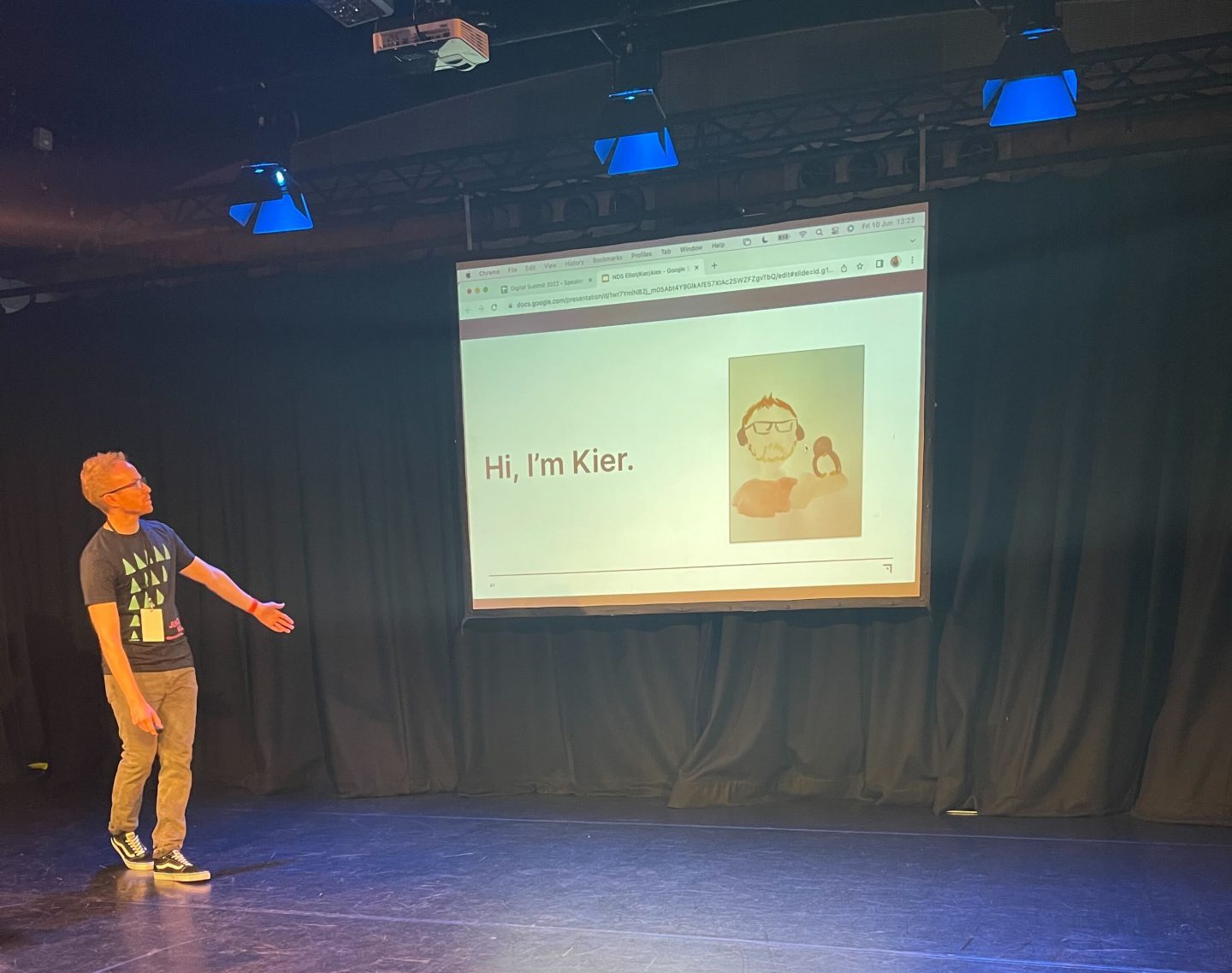
His main advice to succeed as a business and provide excellent customer experience, was to not overlook the importance of consumer research. This research doesn’t need to be expensive or time-consuming: businesses can talk to their existing customers, partners, suppliers and gain a plethora of insights from just a 30-minute depth interview.
How to make Paid Social a success in privacy-first world
Hallam’s Paid Social Lead, Alex Jackson, tackled the complexities of paid social success in a privacy-first world.
Alex explored that we need to be aware that the digital marketing industry is constantly changing and not always in the favour of paid media. As long as we recognise these changes, businesses can act accordingly. The imminent phase-out of cookies means it is vital businesses recognise a shift from third-party data reliance, to first-party and owned data is necessary to continue paid social success. With the looming and imminent death of third-party cookies nearly upon us, Alex explained that: “Better privacy isn’t a bad thing – it’s a much-needed evolution that puts customers first”.

So, how can businesses navigate this? Alex explained that it’s not that people hate adverts – they just hate seeing bad adverts. For marketing teams, this highlights the need for better creative, more compelling campaigns and carefully considering ad placement when it comes to networks (plot spoiler: look beyond Meta…)
Have we got news for you?
Closing the Neville Studio stage programme, we had Louise Third, Director at Integra Communications, who was awarded an MBE for providing pro bono PR support to charity organisations in 2016. She invited Midlands Editor and business journalist at TheBusinessDesk.com, Sam Metcalf, to discuss what makes ‘good’ news.
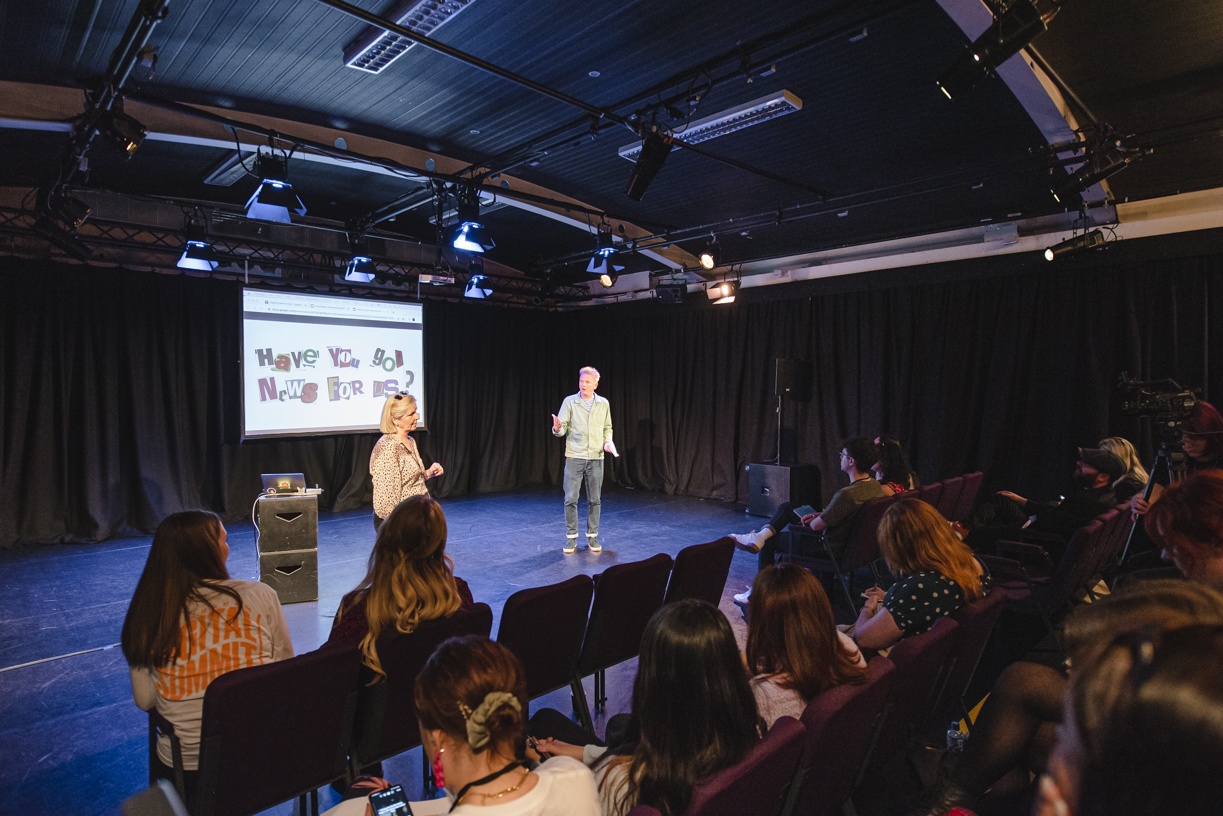
Our final takeaways of the day:
- Think like a journalist
- When pitching, always think: “what’s in it for them?”
- Don’t send a press release in PDF!

